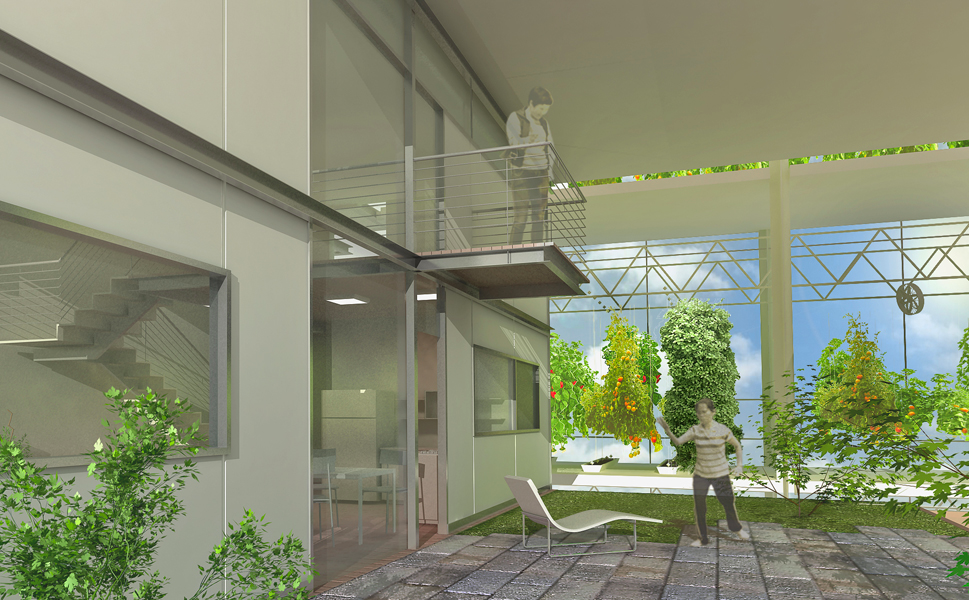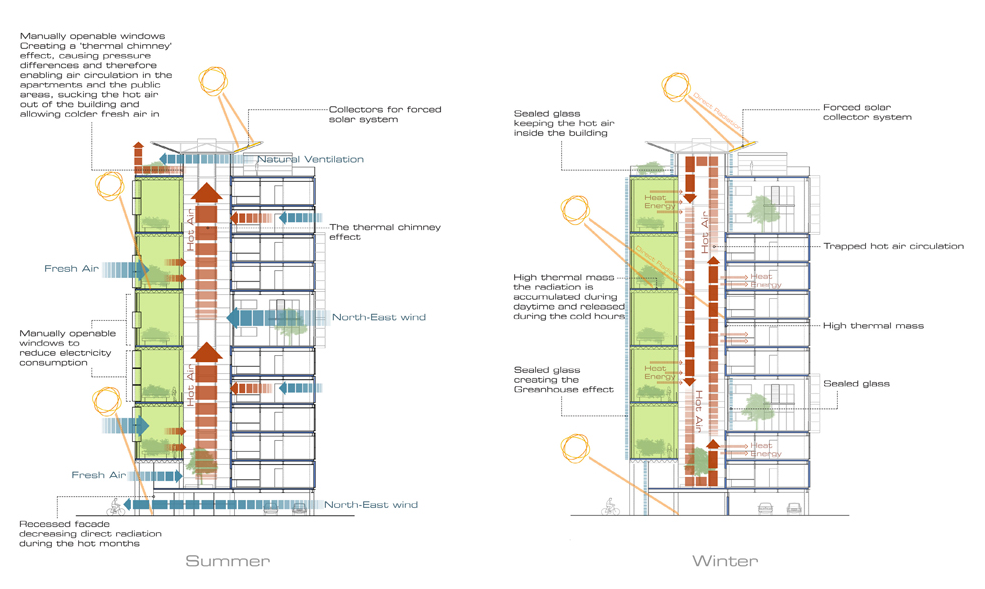Agro-Housing, a multi-storey apartment block proposal by Israeli practice Knafo Klimor Architects, was the winning submission for a site in China in the second Living Steel international design competition in 2007. It is one of the many proposals seen in recent years that intend to integrate food production as a means to increase urban resilience.
Agro-Housing proposes to use food production to address unique housing pressures in China where a massive influx of rural migrants to cities is causing unparalleled urban growth. Residents would have access to space to grow food onsite, either for themselves or for sale to the surrounding community, creating opportunities for families to supplement their income and diet while providing a measure of independence. The aim is to strengthen community interaction while preserving the rural skills and values that many urban residents have recently left behind.
The proposed building includes a variety of community and semi-private spaces intended to create a sense of place and provide amenity within a high-density residential block. They include a ground-floor level kindergarten, a rooftop club and green space for gathering and celebration, and a large, central, multi-storey greenhouse. The project embraces many green building practices to reduce its environmental footprint, including grey water re-use, a ground-source heat pump system, and passive heating and ventilation through the south-facing greenhouse space. The structure and materials were selected for easy erection, dismantling and recycling as well as economy.
The Agro-Housing project raises questions about the value of maintaining rural cultures and traditions in the dense urban environments of the future, suggesting that urban resilience may be found in the best parts of rural culture.
DESIGNERS: Knafo Kilmore Architects
SOURCE: http://www.ryerson.ca/carrotcity/board_pages/housing/agro-housing.html
EDITOR’S NOTE: This project, while integrating many technologies focused on productive space and environmental mediation, is unique in its goals to provide a platform for cultural adaptation due to rapid urbanization.






